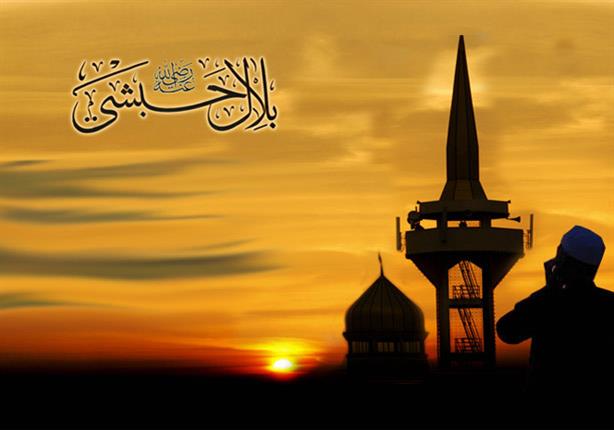Bilal ibn Rabah holds a significant place in Islamic history as a prominent companion of Prophet Muhammad (peace be upon him) and an inspirational figure for Muslims around the world. His life journey, from a slave to a highly respected and influential member of the early Muslim community, serves as a testament to his unwavering faith and dedication to Islam. This article explores the life of Bilal ibn Rabah, shedding light on his early life, conversion to Islam, contributions to the Muslim community, and his enduring legacy.
Who was Bilal ibn Rabah?
Bilal ibn Rabah, born in Makkah in the late 6th century, was an Abyssinian slave of Arab descent. He is best known for his conversion to Islam and his close association with Prophet Muhammad. Bilal’s journey from slavery to becoming one of the most revered individuals in Islamic history showcases the transformative power of faith and the strength of character.
Importance and Significance of Bilal ibn Rabah in Islamic History
Bilal’s role in Islamic history is of immense importance. He played a pivotal role in the early Muslim community and served as the Prophet’s trusted companion. His unwavering faith, dedication, and sacrifices contributed to the establishment and spread of Islam, making him an inspirational figure for generations to come.
Read More: Abu Bakr Al-Siddiq
Early Life of Bilal ibn Rabah

Birth and ancestry
Bilal ibn Rabah was born in Makkah to parents of Abyssinian heritage. He came from a lineage of strong African roots and was part of the larger community of African slaves in the region. Despite being born into slavery, Bilal’s story transcends the boundaries of his servitude.
Childhood and upbringing
As a young child, Bilal experienced the hardships of slavery. His life was marked by laborious tasks and the absence of personal freedom. However, his resilience and strong character began to shape even in his early years, setting the foundation for his remarkable future.
Enslavement and life before Islam
Bilal was owned by Umayyah ibn Khalaf, a prominent figure in Makkah who was known for his cruelty towards slaves. Bilal endured physical and emotional hardships during this time, yet his spirit remained unbroken. His innate sense of justice and yearning for truth laid the groundwork for his later encounter with Islam.
Conversion to Islam
Encounter with Prophet Muhammad
Bilal’s life took a transformative turn when he encountered Prophet Muhammad, who preached the message of monotheism and social justice. The Prophet’s teachings resonated with Bilal, touching his heart and soul. The transformative encounter planted the seed of faith within him.
Acceptance of Islam
In the early days of Islam, Bilal became one of the first individuals to embrace the faith. His conversion marked a significant milestone, as Bilal’s background and lineage challenged the prevailing social hierarchy of Makkah. His acceptance of Islam showcased the religion’s egalitarian values and its ability to bring people from diverse backgrounds together.
Persecution and hardships faced by Bilal
Bilal’s conversion to Islam drew the ire of the Quraysh, the powerful tribe governing Makkah at the time. He faced severe persecution and torture due to his unwavering faith. The Quraysh subjected Bilal to cruel punishment, including public floggings, in an attempt to break his spirit and force him to renounce his newfound faith.
Bilal ibn Rabah in the early Islamic period
Role in the Islamic Community
Despite the persecution, Bilal’s steadfastness and commitment to Islam earned him a special place within the early Muslim community. Prophet Muhammad recognized Bilal’s unwavering faith and appointed him as the first official Mu’adhdhin (caller to prayer) of Islam. This pivotal role granted Bilal a prominent position and symbolized the inclusive nature of the new faith.
Contributions and services to the early Muslim community
Bilal played a crucial role in the early Muslim community. Apart from his duties as the Mu’adhdhin, he actively participated in community-building activities and contributed to the overall welfare of the believers. His selflessness and dedication made him an integral part of Muslim society, fostering a sense of unity and brotherhood among the believers.
Bilal’s Significance in the Prophet’s Life
Prophet Muhammad held Bilal in high esteem and cherished his friendship. Bilal’s unwavering loyalty, resilience, and melodious voice that called the believers to prayer endeared him to the Prophet. The bond between Bilal and the Prophet serves as a testament to the egalitarian and inclusive nature of Islam, transcending societal barriers and promoting equality among believers.
Recommended reading: Azkar al Sabah wal Masaa
Bilal ibn Rabah after the Prophet’s death
Following the demise of Prophet Muhammad, Bilal continued to play an active role in the political and social affairs of the Muslim community. He participated in various consultations and provided guidance to the leaders who succeeded the Prophet. Bilal’s wisdom and experience were valued, and his voice carried weight in matters of importance.
Bilal’s Role in the Spread of Islam
Bilal’s influence extended beyond the Arabian Peninsula. He played a crucial role in the expansion of Islam, accompanying Muslim armies in their conquests and spreading the message of Islam to new regions. Bilal’s sincerity and embodiment of Islamic values attracted many to the faith, leaving an indelible mark on the hearts of those who encountered him.
Legacy and impact of Bilal ibn Rabah
Bilal’s life and legacy continue to inspire Muslims worldwide. His story represents the triumph of faith over adversity, the pursuit of justice, and the importance of unity among believers. Bilal’s unwavering commitment to Islam serves as a timeless reminder of the values and principles that underpin the religion.
Bilal ibn Rabah’s characteristics and qualities

Faith and devotion
Bilal’s unwavering faith in Allah and the teachings of Prophet Muhammad exemplified the essence of Islam. His dedication and devotion to prayer and worship were unmatched, serving as a role model for believers seeking a deeper connection with their Creator.
Courage and resilience
Bilal’s courage and resilience were evident in the face of persecution. Despite enduring physical torture and emotional trauma, he never wavered in his commitment to Islam. Bilal’s steadfastness serves as an inspiration for believers facing challenges in their faith journey.
Leadership and inspirational figure
Bilal’s leadership qualities and ability to inspire others were noteworthy. His role as the Mu’adhdhin and his active participation in community affairs showcased his leadership skills. His life story continues to motivate individuals to strive for excellence and make positive contributions to society.
Recommended reading: The Blessings of Friday in Islam
Bilal ibn Rabah in contemporary times
Reverence and respect for Bilal
Bilal ibn Rabah holds a revered status among Muslims worldwide. His name evokes feelings of reverence and respect, with many Muslims naming their children after him as a sign of admiration. Bilal’s story is shared with new generations, ensuring his memory lives on.
Commemoration and recognition of Bilal’s contributions
Various initiatives and institutions commemorate the life and contributions of Bilal ibn Rabah. Mosques and Islamic centers around the world bear his name as a mark of honor. Annual events and gatherings are held to celebrate his life, allowing Muslims to reflect on his legacy and draw inspiration.
Lessons we can learn from Bilal ibn Rabah’s life
Bilal’s life offers valuable lessons for believers today. His unwavering faith, resilience in the face of adversity, and commitment to justice and equality serve as guiding principles for Muslims striving to embody the teachings of Islam. Bilal’s story emphasizes the importance of standing firm in the face of challenges and upholding the values of compassion, justice, and unity.
Bilal’s story is one of the inspiring stories that children should know. Therefore, we advise all parents to teach Islamic studies through these stories. Therefore, Arabian Toung provides Islamic Studies Course Online For Kids
FAQs
Was Bilal ibn Rabah the only black companion of Prophet Muhammad?
No, Bilal ibn Rabah was not the only black companion of Prophet Muhammad. There were several other companions of African descent who played significant roles in early Islamic history, such as Salman al-Farsi and Suhaib ibn Sinan. The diversity among the companions highlights the inclusive nature of Islam and the importance of unity among believers.
How did Bilal ibn Rabah's conversion to Islam impact his status as a slave?
Bilal's conversion to Islam challenged the prevailing social hierarchy of Makkah, where slavery was deeply entrenched. Islam brought forth the principle of equality among believers, regardless of their social status or lineage. Although Bilal initially faced persecution due to his faith, his acceptance of Islam elevated his status within the Muslim community, emphasizing the importance of character and piety over societal labels.
How did Bilal ibn Rabah contribute to the spread of Islam?
Bilal actively participated in the spread of Islam by accompanying Muslim armies during conquests and sharing the message of Islam with diverse communities. His sincerity, devotion, and embodiment of Islamic values attracted many to
Are there any relics or artifacts associated with Bilal ibn Rabah?
While there are no specific relics or artifacts directly associated with Bilal ibn Rabah, his legacy and impact on Islamic history are remembered and celebrated through oral traditions, historical accounts, and commemorative events. Mosques and Islamic centers may display symbols or artwork depicting Bilal's role as the Mu'adhdhin and his significance in Islamic history.
How can we apply the lessons from Bilal ibn Rabah's life in our daily lives?
The lessons from Bilal ibn Rabah's life can be applied in various aspects of our daily lives as Muslims. We can strive to emulate his unwavering faith, resilience in the face of challenges, and commitment to justice and equality. Bilal's story reminds us of the importance of standing firm in our beliefs, upholding the values of compassion and unity, and making positive contributions to our communities.
Conclusion
Bilal ibn Rabah’s life journey from slavery to prominence stands as a testament to the transformative power of faith and the pursuit of justice. His unwavering commitment to Islam, his contributions to the early Muslim community, and his enduring legacy make him an inspirational figure for Muslims around the world. Bilal’s story resonates with believers, reminding them of the importance of faith, resilience, and dedication to the values of Islam.

